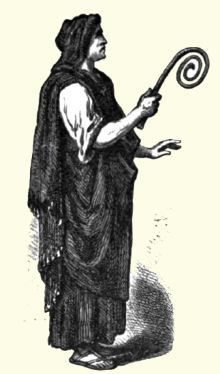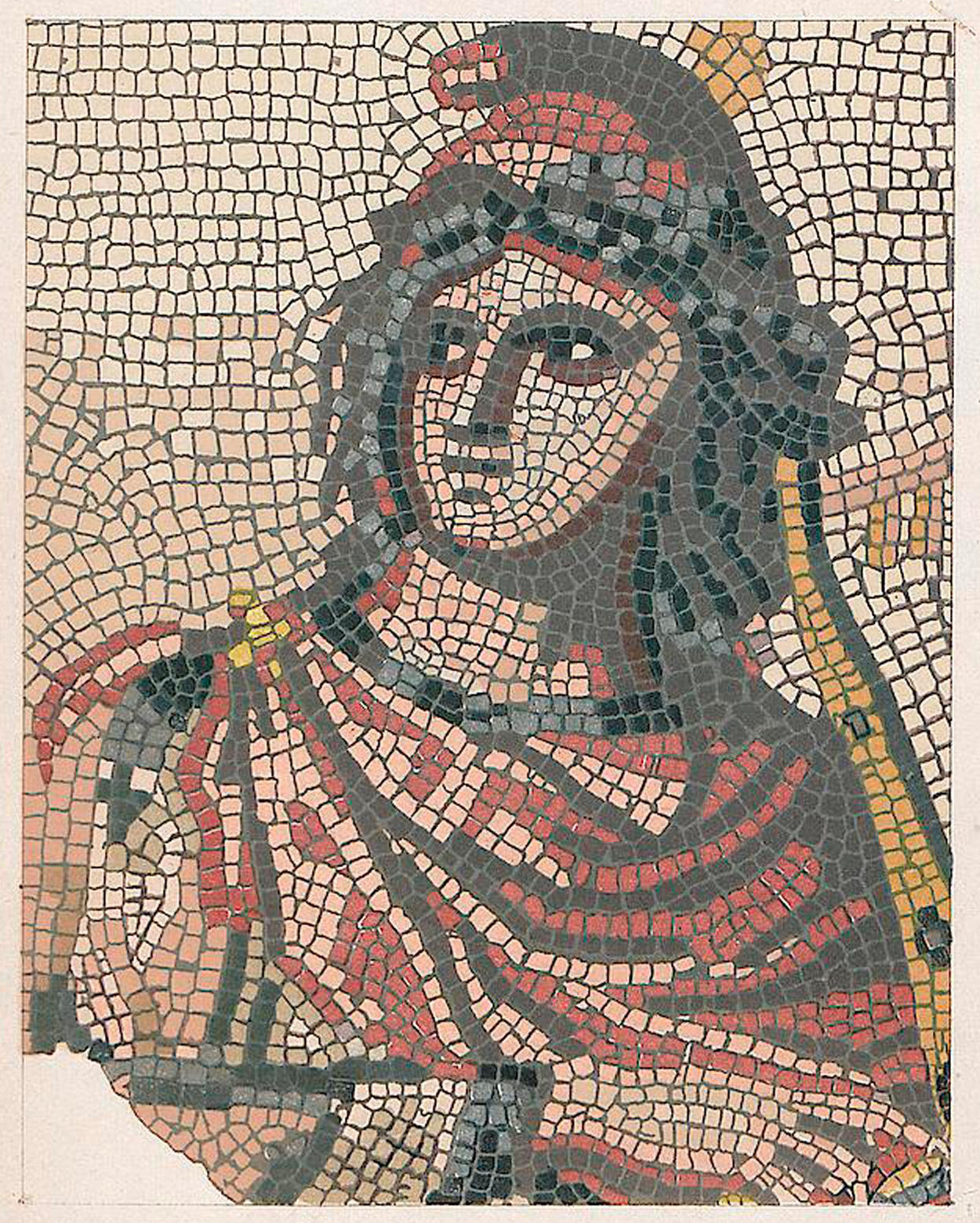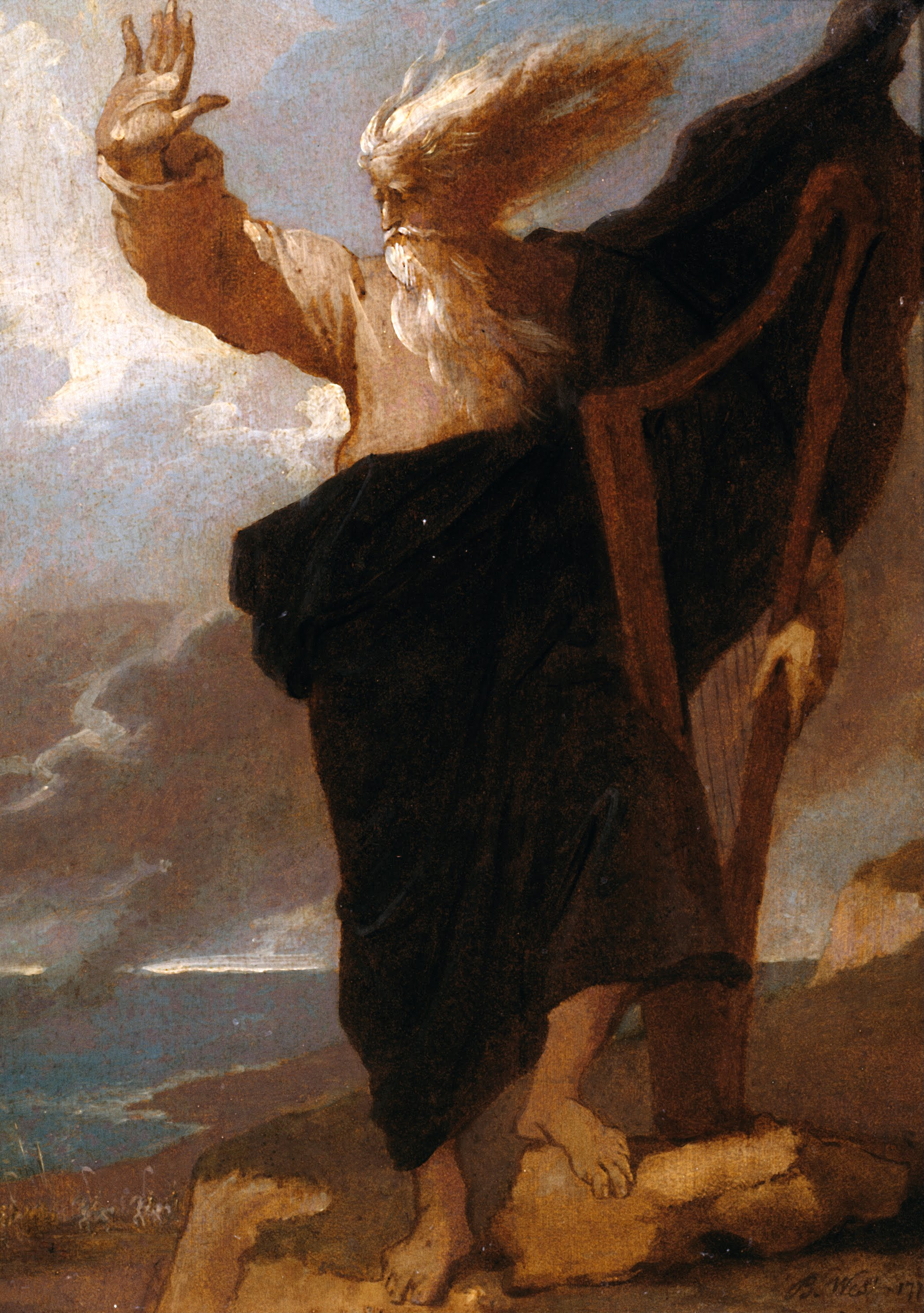|
Phemonoe
In Greek mythology, Phemonoe ( ; ) was a Greek poet of the ante-Homeric period. She was said to have been the daughter of Apollo, his first priestess at Delphi, or of his possible son Delphus, and the inventor of the hexameter verses, a type of poetic metre. Mythology In some studies, the phrase " know thyself" ( γνῶθι σεαυτόν), found inscribed at the entrance to the Temple of Apollo at Delphi, has been attributed to her. Some writers seem to have placed her at Delos instead of Delphi; and Servius identifies her with the Cumaean Sibyl. The tradition which ascribed to her the invention of the hexameter, was by no means uniform; Pausanias, for example, as quoted above, calls her the first who used it, but in another passage he quotes an hexameter distich, which was ascribed to the Peleiades, who lived before Phemonoe: the traditions respecting the invention of the hexameter are collected by Fabricius. There were poems which went under the name of Phemonoe, like the ... [...More Info...] [...Related Items...] OR: [Wikipedia] [Google] [Baidu] |
Apollo
Apollo is one of the Twelve Olympians, Olympian deities in Ancient Greek religion, ancient Greek and Ancient Roman religion, Roman religion and Greek mythology, Greek and Roman mythology. Apollo has been recognized as a god of archery, music and dance, truth and prophecy, healing and diseases, the Sun and light, poetry, and more. One of the most important and complex of the Greek gods, he is the son of Zeus and Leto, and the twin brother of Artemis, goddess of the hunt. He is considered to be the most beautiful god and is represented as the ideal of the ''kouros'' (ephebe, or a beardless, athletic youth). Apollo is known in Greek-influenced Etruscan mythology as ''Apulu''. As the patron deity of Delphi (''Apollo Pythios''), Apollo is an oracular god—the prophetic deity of the Pythia, Delphic Oracle and also the deity of ritual purification. His oracles were often consulted for guidance in various matters. He was in general seen as the god who affords help and wards off e ... [...More Info...] [...Related Items...] OR: [Wikipedia] [Google] [Baidu] |
Delphus
In Greek mythology, Delphus (; Ancient Greek: Δέλφος, ''Delphos'') was the person from whom the town of Delphi was believed to have derived its name. Biography Delphus was said to be the son of Poseidon and Melantho ( Melantheia), daughter of Deucalion. In other accounts, he was the son of Apollo by Celaeno, the daughter of Hyamus and granddaughter of Lycorus, and, according to others, by Thyia, the daughter of the autochthon Castalius, or by Melaina, the daughter of Cephissus. He is further said to have had a son, Pythis, who ruled over the country about Mount Parnassus, and from whom the oracle received the name of Pytho. In yet another version, his mother is Melanis, a daughter of Hyamus and Melantheia, and father is not mentioned; Delphus is said to have inherited his grandfather's kingdom in the neighborhood of Mount Parnassus, to have married Castalia, and to have had two children, a son Castalius and a daughter Phemonoe, the first person to write hexamete ... [...More Info...] [...Related Items...] OR: [Wikipedia] [Google] [Baidu] |
Hexameter
Hexameter is a metrical line of verses consisting of six feet (a "foot" here is the pulse, or major accent, of words in an English line of poetry; in Greek as well as in Latin a "foot" is not an accent, but describes various combinations of syllables). It was the standard epic metre in classical Greek and Latin literature, such as in the ''Iliad'', '' Odyssey'' and ''Aeneid''. Its use in other genres of composition include Horace's satires, Ovid's '' Metamorphoses,'' and the Hymns of Orpheus. According to Greek mythology, hexameter was invented by Phemonoe, daughter of Apollo and the first Pythia of Delphi. __TOC__ Classical hexameter In classical hexameter, the six feet follow these rules: * A foot can be made up of two long syllables a spondee; or a long and two short syllables, a dactyl * The first four feet can contain either one of them. * The fifth is almost always a dactyl, and last must be a spondee / trochee (together forming an adonic). Exceptions can o ... [...More Info...] [...Related Items...] OR: [Wikipedia] [Google] [Baidu] |
Augury
Augury was a Greco- Roman religious practice of observing the behavior of birds, to receive omens. When the individual, known as the augur, read these signs, it was referred to as "taking the auspices". "Auspices" () means "looking at birds". ''Auspex'', another word for augur, can be translated to "one who looks at birds". Depending upon the birds, the auspices from the gods could be favorable or unfavorable (''auspicious'' or ''inauspicious''). Sometimes politically motivated augurs would fabricate unfavorable auspices in order to delay certain state functions, such as elections. Pliny the Elder attributes the invention of auspicy to Tiresias the seer of Thebes. Over the development of the Roman empire, the definition of augury broadened to include other forms of divination. Haruspicy —the examination of animal entrails—was learned from the Etruscans. The Etruscan practice of observing thunder and lightning was also adapted. In Cicero’s time, the augurs had mostly ... [...More Info...] [...Related Items...] OR: [Wikipedia] [Google] [Baidu] |
Orpheus
In Greek mythology, Orpheus (; , classical pronunciation: ) was a Thracians, Thracian bard, legendary musician and prophet. He was also a renowned Ancient Greek poetry, poet and, according to legend, travelled with Jason and the Argonauts in search of the Golden Fleece, and descended into the Greek underworld, underworld to recover his lost wife, Eurydice. The major stories about him are centered on his ability to charm all living things and even stones with his music (the usual scene in Orpheus mosaics), his attempt to retrieve his wife Eurydice from the underworld, and his death at the hands of the maenads of Dionysus, who got tired of his mourning for his late wife Eurydice. As an archetype of the inspired singer, Orpheus is one of the most significant figures in the classical reception studies, reception of classical mythology in Western culture, portrayed or allusion, alluded to in countless forms of art and popular culture including poetry, film, opera, music, and painting ... [...More Info...] [...Related Items...] OR: [Wikipedia] [Google] [Baidu] |
Musaeus Of Athens
Musaeus of Athens (, ''Mousaios'') was a legendary polymath, philosopher, historian, prophet, seer, priest, poet, and musician, said to have been the founder of priestly poetry in Attica. He composed dedicatory and purificatory hymns and prose treatises, and oracular responses. Life A semimythological personage, to be classed with Olen, Orpheus, and Pamphus. He was regarded as the author of various poetical compositions, especially as connected with the mystic rites of Demeter at Eleusis, over which the legend represented him as presiding in the time of Heracles. He was reputed to belong to the family of the Eumolpidae, being the son of Eumolpus and Selene. In other variations of the myth he was less definitely called a Thracian. According to Diodorus Siculus, Musaeus was the son of Orpheus, and according to Tatian he was the disciple of Orpheus. Others made him the son of Antiphemus, or Antiophemus, and Helena. Alexander Polyhistor, Clement of Alexandria and Eusebius say h ... [...More Info...] [...Related Items...] OR: [Wikipedia] [Google] [Baidu] |
Bards
In Celtic cultures, a bard is an oral repository and professional story teller, verse-maker, music composer, oral historian and genealogist, employed by a patron (such as a monarch or chieftain) to commemorate one or more of the patron's ancestors and to praise the patron's own activities. With the decline of a living bardic tradition in the modern period, the term has loosened to mean a generic minstrel or author (especially a famous one). For example, William Shakespeare and Rabindranath Tagore are respectively known as "the Bard of Avon" (often simply "the Bard") and "the Bard of Bengal".Oxford Dictionary of English, s.v. ''bard'', n.1. In 16th-century Scotland, it turned into a derogatory term for an itinerant musician; nonetheless it was later romanticised by Sir Walter Scott (1771–1832). Etymology The English term ''bard'' is a loan word from the Celtic languages: Gaulish: ''bardo-'' ('bard, poet'), and ('bard, poet'), ('singer, poet'), Middle Breton: ''barz'' ... [...More Info...] [...Related Items...] OR: [Wikipedia] [Google] [Baidu] |
Melampus
In Greek mythology, Melampus (; , ''Melampous'') was a legendary soothsayer and healer, originally of Pylos, who ruled at Argos. He was the introducer of the worship of Dionysus, according to Herodotus, who asserted that his powers as a seer were derived from the Egyptians and that he could understand the language of animals. A number of pseudepigraphal works of divination were circulated in Classical and Hellenistic times under the name Melampus. According to Herodotus and Pausanias (vi.17.6), on the authority of Hesiod, his father was Amythaon, whose name implies the "ineffable" or "unspeakably great"; thus Melampus and his heirs were ''Amythaides'' of the "House of Amythaon". Maurice de Guérin made him one of the characters of the first Western prose poem, "The Centaur", in 1835. Homer In Homer's ''Odyssey'', a digression concerning the lineage of Theoclymenus, "a prophet, sprung from Melampus' line of seers", sketches the epic narrative concerning Melampus with suc ... [...More Info...] [...Related Items...] OR: [Wikipedia] [Google] [Baidu] |
Pliny The Elder
Gaius Plinius Secundus (AD 23/24 79), known in English as Pliny the Elder ( ), was a Roman Empire, Roman author, Natural history, naturalist, and naval and army commander of the early Roman Empire, and a friend of the Roman emperor, emperor Vespasian. He wrote the encyclopedic (''Natural History''), a comprehensive thirty-seven-volume work covering a vast array of topics on human knowledge and the natural world, which became an editorial model for encyclopedias. He spent most of his spare time studying, writing, and investigating natural and geographic phenomena in the field. Among Pliny's greatest works was the twenty-volume ''Bella Germaniae'' ("The History of the German Wars"), which is Lost literary work, no longer extant. ''Bella Germaniae'', which began where Aufidius Bassus' ''Libri Belli Germanici'' ("The War with the Germans") left off, was used as a source by other prominent Roman historians, including Plutarch, Tacitus, and Suetonius. Tacitus may have used ''Bella Ger ... [...More Info...] [...Related Items...] OR: [Wikipedia] [Google] [Baidu] |
Greek Mythology
Greek mythology is the body of myths originally told by the Ancient Greece, ancient Greeks, and a genre of ancient Greek folklore, today absorbed alongside Roman mythology into the broader designation of classical mythology. These stories concern the ancient Greek religion's view of the Cosmogony, origin and Cosmology#Metaphysical cosmology, nature of the world; the lives and activities of List of Greek deities, deities, Greek hero cult, heroes, and List of Greek mythological creatures, mythological creatures; and the origins and significance of the ancient Greeks' cult (religious practice), cult and ritual practices. Modern scholars study the myths to shed light on the religious and political institutions of ancient Greece, and to better understand the nature of mythmaking itself. The Greek myths were initially propagated in an oral tradition, oral-poetic tradition most likely by Minoan civilization, Minoan and Mycenaean Greece, Mycenaean singers starting in the 18th century&n ... [...More Info...] [...Related Items...] OR: [Wikipedia] [Google] [Baidu] |
Epigram
An epigram is a brief, interesting, memorable, sometimes surprising or satirical statement. The word derives from the Greek (, "inscription", from [], "to write on, to inscribe"). This literary device has been practiced for over two millennia. The presence of wit or sarcasm tends to distinguish non-poetic epigrams from aphorisms and adages, which typically do not show those qualities. Ancient Greek The Greek tradition of epigrams began as poems inscribed on votive offerings at sanctuariesincluding statues of athletesand on funerary monuments, for example "Go tell it to the Spartans, passersby...". These original epigrams did the same job as a short prose text might have done, but in verse. Epigram became a literary genre in the Hellenistic period, probably developing out of scholarly collections of inscriptional epigrams. Though modern epigrams are usually thought of as very short, Greek literary epigram was not always as short as later examples, and the divide between ... [...More Info...] [...Related Items...] OR: [Wikipedia] [Google] [Baidu] |
Johann Albert Fabricius
Johann Albert Fabricius (11 November 1668 – 30 April 1736) was a German classical scholar and bibliographer. Biography Fabricius was born in Leipzig, son of Werner Fabricius, director of music in the church of St. Paul at Leipzig, who was the author of several works, the most important being ''Deliciae Harmonicae'' (1656). The son received his early education from his father, who on his deathbed recommended him to the care of the theologian Valentin Alberti. He studied under J. G. Herrichen, and afterwards at Quedlinburg under Samuel Schmid. It was in Schmid’s library, as he afterwards said, that he found the two books, Kaspar von Barth's compendium ''Adversariorum libri LX'' (1624) and Daniel Georg Morhof's ''Polyhistor'' (1688), which suggested to him the idea of his ''Bibliothecæ'', the kind of works on which his great reputation was ultimately founded. On returning to Leipzig in 1686, he published anonymously two years later his first work, ''Scriptorum recentiorum ... [...More Info...] [...Related Items...] OR: [Wikipedia] [Google] [Baidu] |






